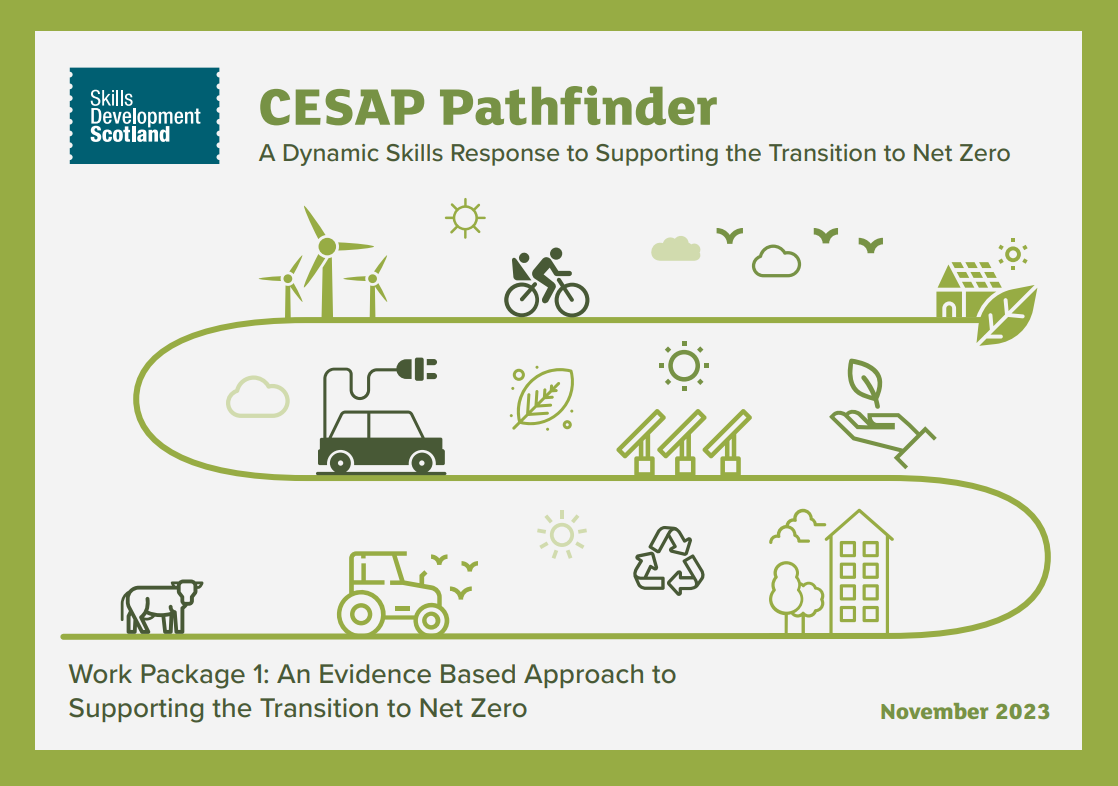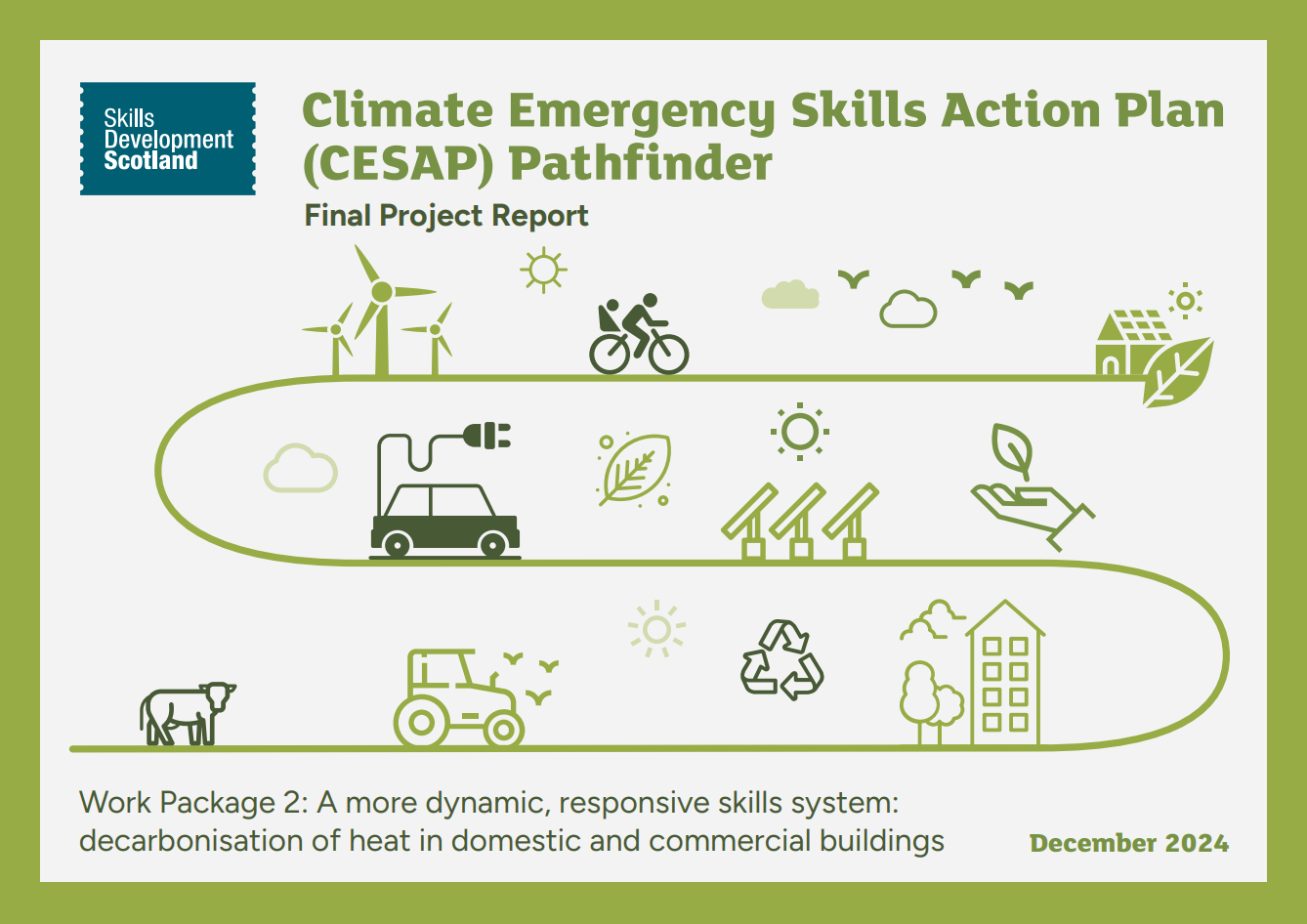Evidence on Green Skills
Reaching Scotland’s ambition of becoming a net zero carbon emitter by 2045 requires transformational change. More skilled people will be required across a range of jobs to cut the carbon footprint and create new, environmentally friendly solutions.
This requires both a skills system and a labour market that are more agile, proactive, responsive, and more resilient than ever before. The skills system has a key role to play in understanding changing demands, tailoring the supply of skills to meet growing demand, mitigating risks as they arise, and supporting individuals to secure emerging opportunities.
The Climate Emergency Skills Action Plan (CESAP) Pathfinder was designed to respond directly to this challenge, through two complementary work packages. Skills Development Scotland - supported by colleagues in the Scottish Funding Council and Scottish Government – led on the CESAP Pathfinders.
Work Package 1: Evidence Based Approach to Supporting the Transition to Net Zero.
This took a comprehensive and systemic approach to understanding both:
- the demand for skills across the key sectors identified in CESAP as important to the transition to net zero, and
- the current and ongoing investment in skills provision across further education, higher education and work-based learning looking to meet the identified need
This approach assessed and provided an enhanced evidence base to allow for the development of an effective skills response, identified issues and gaps, and highlighted appropriate areas for current and future focus.
Work Package 2: Decarbonisation of Domestic and Commercial Heating Pilots.
This focused on the decarbonisation of domestic and commercial heating, chosen because of the primacy of the sector as an early investment programme being delivered through the Update to the Climate Change Plan 2018-2032.
Heat decarbonisation is the transition from fossil fuel heating sources to low carbon heat sources. The work associated with this transition is not just about changing heating systems, but also work to the fabric of buildings to improve energy efficiency.
A focus on this sub-sector allowed for a more detailed understanding of:
- the scale and location of the investment driving growth
- the potential volumes and timelines associated with any job opportunities
- the consequent demand for skills
After consultation with partners and the Scottish Government, two pilot areas were identified for Work Package 2 – Shetland and Glasgow City Region. Partners were provided with the evidence collected in each region and agreed on three areas of action for each region to take forward which will help address the identified skills challenges.
Reports

Green Jobs in Scotland

An Evidence Based Approach to Supporting the Transition to Net Zero

Career Opportunities across Scotland in Offshore Wind
Find out more about the skills and job opportunities Offshore Wind is bringing to Scotland. Resources include the ScotWind Jobs Quick Guide graphic.

Decarbonisation of heat
CESAP Work Package 2 is titled 'A more dynamic responsive skills system: decarbonisation of heat in domestic and commercial buildings.'